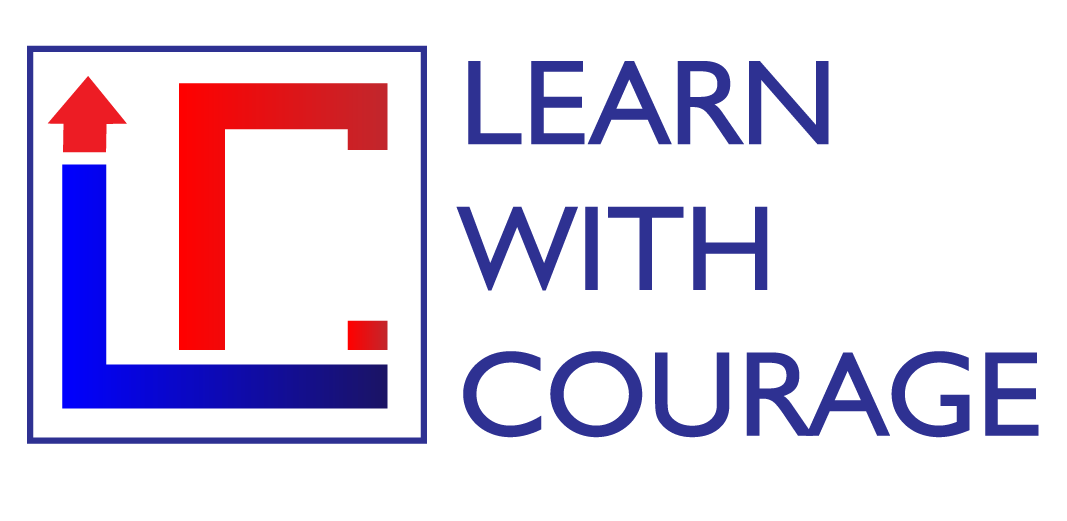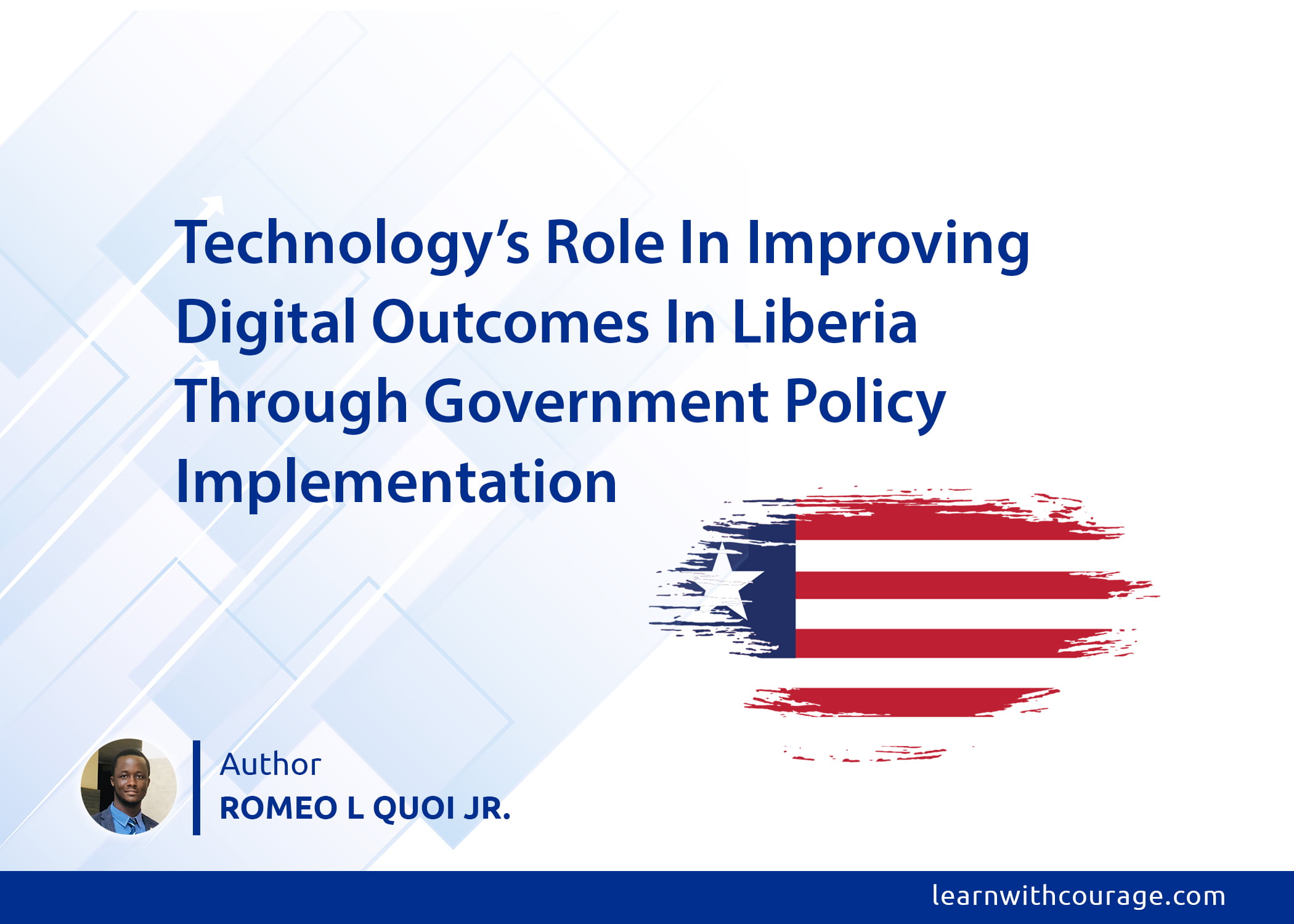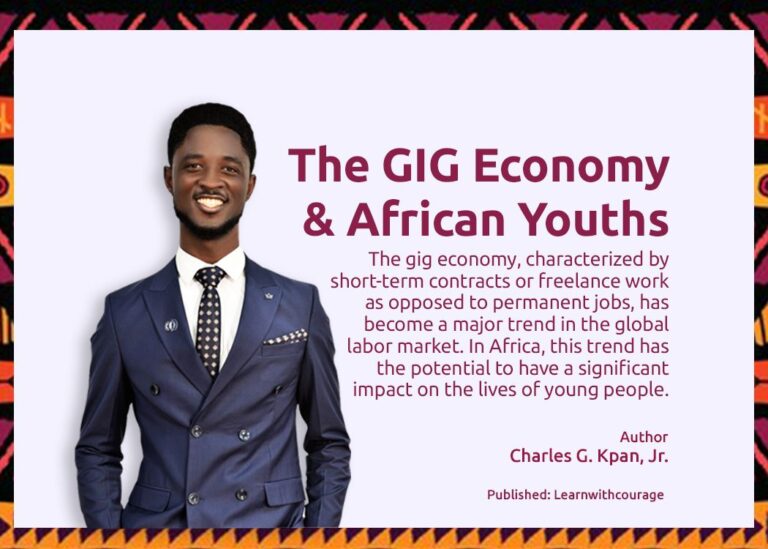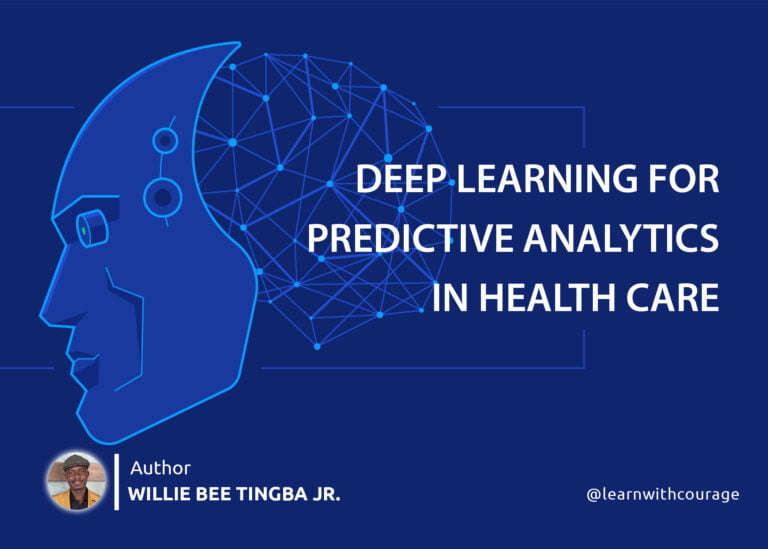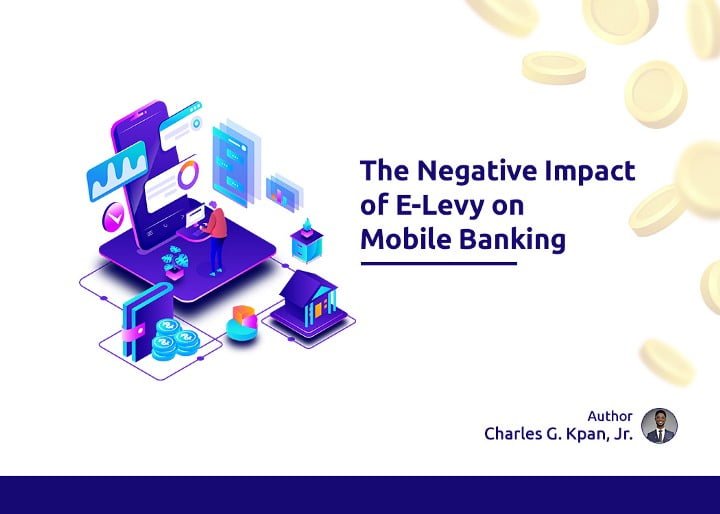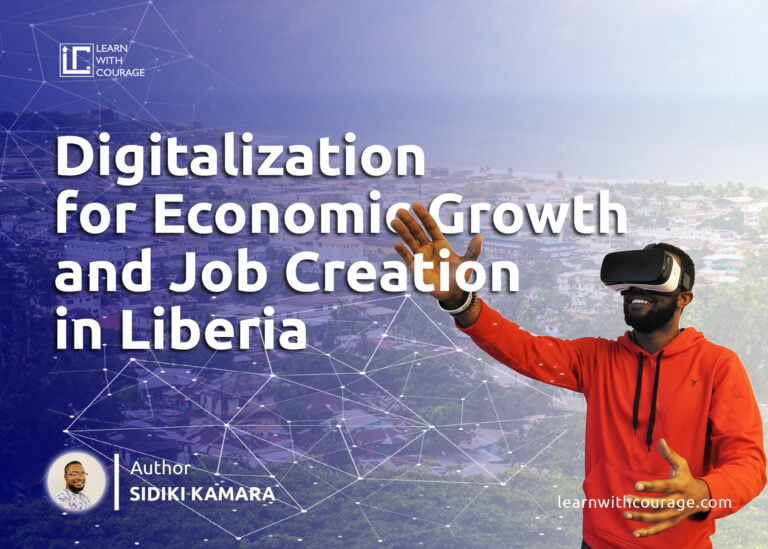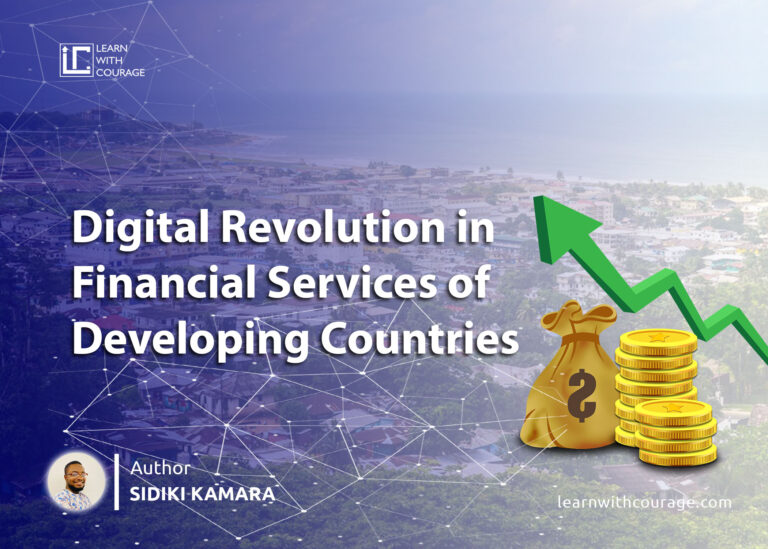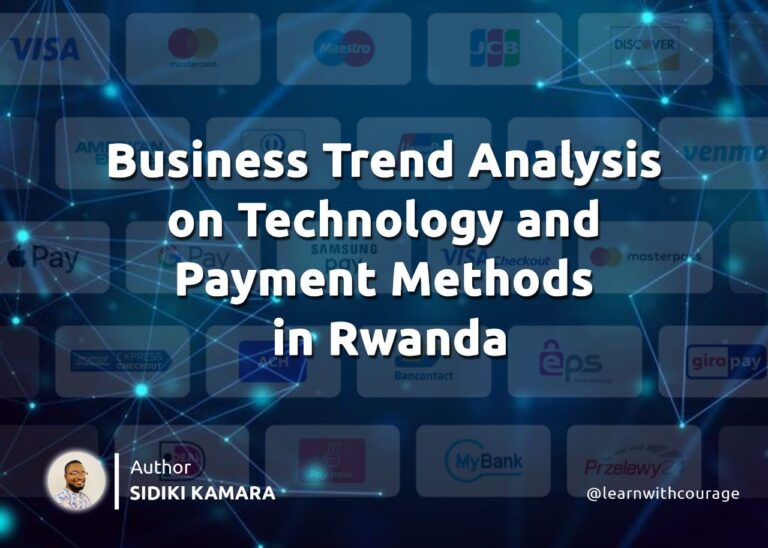Technology’s Role In Improving Digital Outcomes In Liberia Through Government Policy Implementation
Liberia is facing numerous challenges in almost all government sectors, including healthcare, infrastructure, transportation, education, revenue, anti-corruption efforts, and many more discussed in this article, hindering its progress and reducing the quality of life for its citizens. While traditional approaches to addressing these challenges have proven to be insufficient and integrating technology into government offers a promising solution. In this article, we will explore the various challenges faced by Liberia in these areas and the role technology can play in addressing these challenges and promoting sustainable development in the country.
The Problem: In Liberia, the challenges faced in various areas, including healthcare, infrastructure, transportation, education, and anti-corruption efforts, have negatively impacted the quality of life for its citizens and hindered the country’s progress. Despite efforts to address these challenges, there is a need for innovative and effective solutions to improve outcomes in these areas and promote sustainable development in the country. With the growing adoption of technology in government, there is an opportunity for Liberia to harness the power of technology to address its challenges and drive positive change.
The solution: The establishment of a Ministry of Technology in a country would be responsible for creating and implementing technology-related policies across various economic sectors. This would include policies related to research and development, innovation, digital infrastructure, and the promotion of technology-based industries. This ministry would likely work closely with other government agencies and departments, such as the Ministry of Agriculture, Ministry of Health, and Ministry of Education, to develop and implement technology-based solutions to address challenges in these areas.
Additionally, a Ministry of Technology would likely work to promote digital literacy and access to technology for all citizens to ensure that everyone can benefit from the advancements in technology. By having a central agency focused on technology, the country can develop a cohesive technology strategy and make sure that all government initiatives are aligned with the technology policy.
Technology can be used as a policy to help achieve a variety of goals in different areas which include:
Agriculture: Technology can be used to improve crop yields and reduce costs through precision farming.
Governing: Technology can be used to improve transparency and fight corruption through the use of blockchain and other digital technologies for voting systems, public record-keeping, and anti-fraud measures.
Health: Technology can be used to improve access to healthcare and medical research through the use of telemedicine and digital health platforms.
Infrastructure: Technology can be used to improve transportation and communication systems through the use of smart cities, 5G networks, and autonomous vehicles.
Land Rights: Technology can be used to improve land management through the use of GIS and other mapping technologies and digital land registries.
Transparency and Fight Against Corruption: Technology can be used to improve transparency through the use of blockchain and other digital technologies for voting systems, public record-keeping, and anti-fraud measures.
Education: Technology can be used to provide access to online resources and distance learning opportunities, which can improve educational outcomes and increase access to education.
International Relations: Technology can be used to promote diplomacy and trade through the use of digital communication and e-commerce platforms.
Housing: Technology can be used to improve housing affordability and accessibility through the use of smart building technology and digital platforms for housing transactions.
Job Creation and the Economy: Technology can be used to promote innovation and increase productivity through the use of digital platforms and automation.
Environmental Protection: Technology can be used to monitor and manage the environment, such as through the use of satellite imagery to track deforestation and the use of smart grid systems to manage energy consumption.
Criminal Justice: Technology can be used to improve the criminal justice system, such as through the use of facial recognition technology and DNA analysis to solve crimes and reduce wrongful convictions.
Emergency Management: Technology can be used to improve emergency response and management, such as through the use of predictive analytics and real-time monitoring to track natural disasters and respond more effectively.
Finance and Taxation/Revenue Generation: Technology can be used to improve financial management and tax collection, such as through the use of blockchain and digital currencies for secure transactions and the use of data analysis to identify tax fraud.
Immigration: Technology can be used to improve immigration processes, such as through the use of biometric systems for identity verification and digital platforms for application processing.
Security: To improve security in Liberia, the implementation of technology in the form of fingerprinting, SS-Cards, Driver Licenses, and high school student IDs can help law enforcement effectively investigate crimes. By having these records, police can use technology to their advantage to quickly and accurately track down perpetrators, just as is done in the United States and other places where technology plays a major role in crime-solving. Implementing this technology will help to enhance security and protect the lives and properties of Liberians and foreign residents alike.
In summary, technology can be used as a policy to improve efficiency, increase access, and promote growth in various areas.
About the author:
Romeo L. Quoi, Jr. is a highly motivated and dedicated Ph.D. student in the field of software engineering. I possess a strong educational background with two Master’s degrees in Web Design and Development and Computer Science and Technology. His skill set includes programming, corporate working experience, and a proven track record as a lecturer at the university level, He is currently serving as a consultant for local and international organizations on tech projects. Additionally, he has experience in curriculum development and building e-learning systems.
